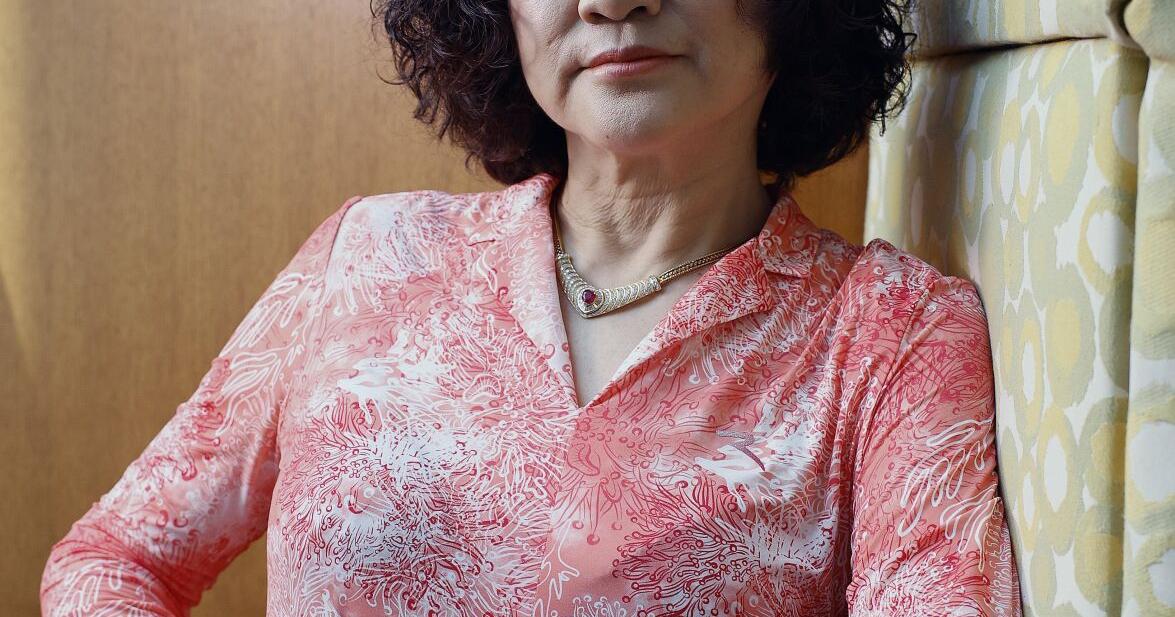Central Walk, the B.C.-based mall owner controlled by billionaire Weihong Liu, is pushing back against concerns raised by a major Hudson’s Bay landlord that Liu has not provided a concrete business plan to operate a department store on the beleaguered retailer’s former locations.
Central Walk CEO Linda Qin says Liu and her team have been “actively advancing operational work at the store level and have made meaningful progress” since April. Qin says the company is confident in its ability to successfully revitalize these retail spaces after engaging with vendors, suppliers and former Hudson’s Bay employees.
Qin’s comments address a statement by Sal Iacono, CEO of Cadillac Fairview, the real estate arm of the Ontario Teachers’ Pension Plan, on Wednesday that Liu had not provided “a meaningful business plan or other requisite information” and was “unprepared to discuss her plans” during a brief meeting in early June.
“We have not received any evidence of retail management expertise, established supplier relationships, logistical/e-commerce capabilities, or robust and realistic financial projections,” Iacono said.
Cadillac Fairview is not the only landlord objecting to Liu’s plan to purchase as many as 25 former Hudson’s Bay leases. That’s in addition to the purchase of three Hudson’s Bay leases an Ontario court approved earlier this week.
Court documents show landlords of at least 23 leases have opposed Liu’s plan, and some of their lawyers blasted the process as “very troubled” and lacking in information in court earlier this week.
The Chinese entrepreneur, who immigrated to Canada in 2019, told the Star in a rare in-person interview last week that she wants to transform the former Hudson’s Bay locations into shopping centres filled with dining, entertainment, and experiences, operating under her English name, Ruby Liu.
Qin, Liu’s business partner, said on Thursday that Liu felt she was treated rudely by Cadillac Fairview’s CEO during their meeting in early June.
Cadillac Fairview declined to comment on the allegation.
Qin added that Liu and her team “have engaged extensively with suppliers and vendors, many of whom have expressed strong interest in working with us.”
Hudson’s Bay shuttered more than 80 stores on June 1, leaving vendors and suppliers to search for new retail channels, Qin said. That, she argued, gives Central Walk a key advantage in securing inventory, especially since Liu wants to acquire just 28 of the former leases.
Qin also said Central Walk has received several hundred resumes from “highly qualified candidates, including many former HBC managers and employees,” and she is convinced that they will be ready to support immediate store openings as soon as the locations are prepared to welcome customers.
When asked by the Star about Iacono’s statement that he has not received evidence supporting Liu’s intentions, Qin said Liu is arranging a meeting with him and cannot disclose details at this time.
Iacono said in the statement to the Star that Cadillac Fairview supports Liu’s goal of enabling retail jobs in Canada, but believes it would be better served with other “established retailers with proven track records” occupying these former HBC boxes.
The chances of the court approving the sale of the 25 leases are significantly dwindling as opposition grows among the large bulk of landlords, said Tim Dunn, a bankruptcy attorney who is not involved in the case.
Even if Hudson’s Bay applies to the court for a forced assignment, Dunn said the motion could face fierce challenges from landlords who may argue that Liu has not provided enough information to prove she can honour the use clauses in the leases.
Court records show that Liu paid a deposit of $9.4 million toward the remaining 25 leases she wishes to acquire, in addition $6 million for the three leases she has been approved to purchase.
Dunn said that while it’s a significant amount of money, it will go directly to the pocket of Hudson’s Bay’s first-ranking secured creditors, leaving nothing for its employees and other unsecured creditors who are owed over $520 million.
“I don’t think they have any other options (than Liu),” said Dunn. “The only other option is that the space goes back to the landlords.”



